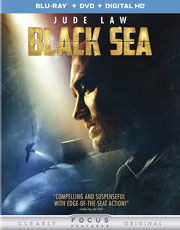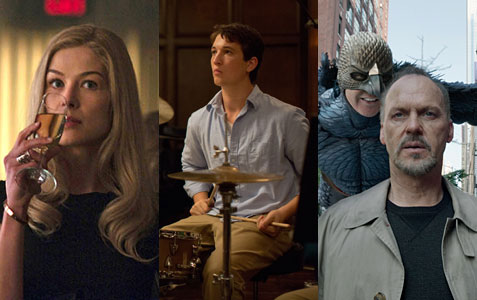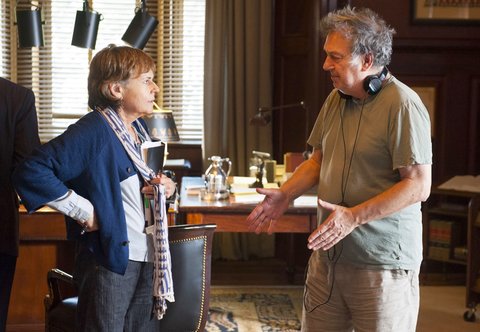Blu Tuesday: Selma, Black Sea and More
Every Tuesday, I review the newest Blu-ray releases and let you know whether they’re worth buying, renting or skipping, along with a breakdown of the included extras. If you see something you like, click on the cover art to purchase the Blu-ray from Amazon, and be sure to share each week’s column on Facebook and Twitter with your friends.
WHAT: When Martin Luther King, Jr. (David Oyelowo) and the Southern Christian Leadership Council are invited to Selma, Alabama to stage their latest fight in the civil rights movement, they organize a series of non-violent protests in the hopes that it will force President Johnson (Tom Wilkinson) to pass the Voting Rights Act.
WHY: Who would’ve thought that a movie that takes place nearly 50 years ago would feel so relevant today? And yet while the parallels between Ava DuVernay’s “Selma” and the current racial tension across the country are indisputable, the film deserves to be judged on its own merits, because it’s a deftly made drama that takes a page from Steven Spielberg’s “Lincoln” by focusing on a single (but very important) chapter in Martin Luther King, Jr.’s life. To DuVernay’s credit, she manages to make almost every moment – from the backroom politics, to King’s rousing speeches – as riveting as the last, and a big part of that success falls on the casting, even those in bit roles. David Oyelowo is fantastic as the pastor turned civil rights activist, playing him with an expected gracefulness, but also a hint of exhaustion and self-doubt that reveals the toll his crusade for equality has taken on him. It’s hard to imagine the film being nearly as effective with another actor in the role, because it’s Oyelowo’s powerful performance that transforms “Selma” from yet another stuffy biopic into a stirring political drama worthy of Dr. King’s legacy.
EXTRAS: In addition to a pair of audio commentaries – one with director Ava DuVernay and actor David Oyelowo, and another with DuVernay, cinematographer Bradford Young and editor Spencer Averick – there are behind-the-scenes featurettes on the film’s origins and production, some deleted scenes, a collection of newsreels and photos from the period, and much more.
FINAL VERDICT: RENT
WHAT: After he’s fired from his job at a marine salvage company, submarine captain Robinson (Jude Law) assembles a group of former employees (half British, half Russian) to search the Black Sea for a Nazi U-boat rumored to be carrying approximately 80 million dollars in gold.
WHY: Submarines are the perfect setting for a thriller – they’re dark, claustrophobic and offer no hope of escape – which is why it’s so surprising that there aren’t more films that take advantage of them. Granted, there are probably more than you think, but very few are any good, and “Black Sea” can count itself among that exclusive group. Not only is the movie a welcome return to form for director Kevin Macdonald, who sort of fell off the map after his 2009 remake of “State of Play,” but it reaffirms why Jude Law is one of the most underrated actors in the business. Law delivers yet another excellent performance as the under-pressure captain who sees the mission as his last chance at redemption, and he’s surrounded by a cast of reliable supporting players like Scoot McNairy, Ben Mendelsohn and Michael Smiley. The “us vs. them” mentality between the British and Russian crew members provides plenty of suspense as their greed and paranoia builds throughout the film, and while certain character actions don’t exactly make sense (as things go from bad to worse, the wrong people are blamed), “Black Sea” manages to stay afloat thanks to its engaging premise, solid performances and taut direction.
EXTRAS: There’s an audio commentary by director Kevin Macdonald and a short making-of featurette.
FINAL VERDICT: RENT
You can follow us on Twitter and Facebook for content updates. Also, sign up for our email list for weekly updates and check us out on Google+ as well.
Posted in: Entertainment, Movies, Television
Tags: Black Sea, Blu Tuesday, Halt and Catch Fire, Lost River, Mr. Turner, new Blu-rays, Selma



















